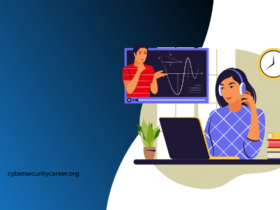PII stands for “personally identifiable information.” In short, any data could be used to identify an individual. This includes names, Social Security numbers, addresses, and driver’s license numbers. In cyber security, PII is one of the most valuable commodities. Hackers can use it to commit identity theft, fraud, and other crimes. Protecting your PII is essential—and why companies that collect it are legally obligated to do so. This blog post will discuss PII, why it’s so important to protect, and how you can do so.
What is PII?
PII is short for Personally Identifiable Information. It’s any data that could be used to identify a specific individual. PII can include your name, address, date of birth, Social Security number, and biometric data.
Most businesses collect and use PII as part of their day-to-day operations. For example, when you apply for a job, the employer will likely ask for your name, address, and date of birth. They may also ask for your Social Security number to run a background check.
While PII is necessary for many business activities, it’s also sensitive information that can be misused if it falls into the wrong hands. That’s why it’s essential to have strong security measures in place to protect PII from unauthorized access and disclosure.
Why is PII critical in cyber security?
PII, or personally identifiable information, is sensitive data that can be used to identify an individual. This information can include a person’s name, address, date of birth, Social Security number, and driver’s license number. PII can also include financial information, such as credit card numbers and bank account information.
When this information falls into the wrong hands, it can be used for identity theft or other fraudulent activities. That’s why organizations need to have cyber security measures in place to protect this type of data.
There are several ways to collect PII. For example, it can be gathered through online form submissions, social media posts, or even over the phone. Once collected, this information needs to be stored securely. That way, if it falls into the wrong hands, it can’t be used to commit fraud or theft.
Organizations that collect and store PII need to protect it from cyber-attacks. This includes implementing strong security measures like firewalls and encryption. They should also have policies and procedures for handling this type of data. And they should train their employees to keep PII safe from cyber threats.
By taking these steps, organizations can help protect people’s sensitive information from falling into the wrong hands. And that’s why PII is so important in cyber security.
How can you protect your PII?
There are a few key things you can do to protect your PII:
- Keep your personal information private. Be careful about who you share it with, and only give it out when necessary.
- Use strong passwords for all of your online accounts. Make sure they are long, complex, and unique so they can’t be easily guessed or hacked.
- Be cautious about the emails you open and the links you click on. Cybercriminals often use phishing scams to try and trick people into revealing their personal information. Don’t take the bait!
- Keep your software and security systems up-to-date. This includes your operating system, web browser, anti-virus program, and a firewall. Regular updates help patch vulnerabilities that hackers could exploit.
- Monitor your credit report regularly for signs of fraud or identity theft. You’re entitled to one free credit report from each of the three major credit bureaus yearly at AnnualCreditReport dot com. Reviewing your report regularly can help you catch any suspicious activity early on so you can take steps to resolve it quickly.
What is the importance of PII in Cyber Security?
PII, or Personally Identifiable Information, is any data that can be used to identify an individual. This includes names, addresses, birthdates, Social Security numbers, and driver’s license numbers. PII can also include less obvious information like IP addresses, biometric data, and geolocation data.
Most organizations collect some form of PII from their customers or employees. And as we increasingly rely on technology, the amount of PII collected is growing exponentially. While this data can be precious to businesses, it also poses a significant risk if it falls into the wrong hands.
A cyber attacker could use PII to commit identity theft, fraud, or other crimes. They could also use it to target individuals for phishing attacks or other social engineering scams. In some cases, attackers may even sell stolen PII on the black market.
Because of the risks involved, organizations need to protect the PII they collect. This includes ensuring that only authorized personnel have access to it and that it’s stored securely. Organizations should also have procedures in place for responding to data breaches.
By taking these precautions, organizations can help protect their customers or employees from becoming victims of cybercrime.
What is Personally Identifiable Information (PII)?
Personally identifiable information (PII) is any data that could identify a specific individual. This information can include (but is not limited to) a person’s name, Social Security number, driver’s license number, financial records, medical history, and email addresses.
When PII is used for marketing purposes or sold to third-party data brokers, it can create detailed profiles of individual consumers that are valuable to advertisers. Sometimes, PII can be used for identity theft or other malicious activities.
That’s why it’s essential to understand what PII is and how it’s used. Do you have any concerns about your PII being mishandled? In that case, you should contact the company or organization that has collected your information and request that they delete it from their records.
How can attackers use PII?
There are many ways that attackers can use PII to harm individuals or organizations. For example, PII can be used to steal identities, commit fraud, or sell sensitive information. Attackers may also use PII to impersonate individuals or gain access to their accounts. Additionally, PII can target individuals with phishing attacks or other forms of social engineering. Finally, PII can be exploited in data breaches to obtain sensitive information about individuals or organizations.
Conclusion
PII, or Personally Identifiable Information, is any information that can be used to identify an individual. This includes names, addresses, Social Security numbers, and more. PII is considered a valuable commodity in cyber security because it can be used for identity theft and other malicious activities. That’s why it’s essential to protect your PII online. Knowing what PII is and how it can be used against you can help keep yourself safe from identity theft and other cyber crimes.










Leave a Reply